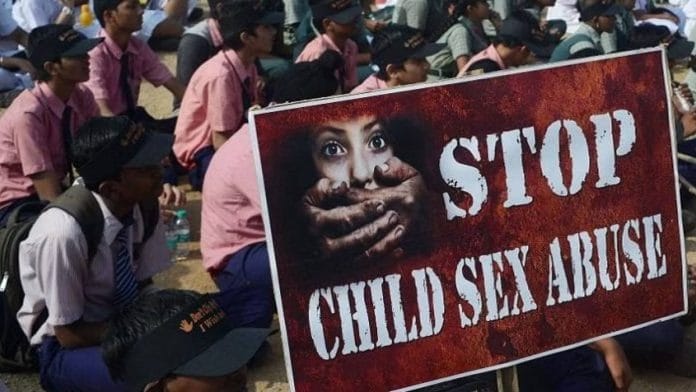Thank you dear subscribers, we are overwhelmed with your response.
Your Turn is a unique section from ThePrint featuring points of view from its subscribers. If you are a subscriber, have a point of view, please send it to us. If not, do subscribe here: https://theprint.in/subscribe/
There is an unspoken truth in India that far too many cases of child sexual abuse are buried — not due to lack of evidence, but because they are wrapped tightly in layers of silence, shame, and systemic neglect. For every child who makes it to a courtroom or a police station, there are hundreds whose voices are muffled inside family homes, schools, and communities. In such a landscape, two tools—support persons and compensation—emerge as not just legal mechanisms, but lifelines for those who have been harmed.
The journey of a child survivor in India is not just about justice in the conventional sense. It’s about healing, dignity, and having someone walk beside you when the rest of the world would rather look away. That is where support persons come in.
The idea of a support person is simple, yet revolutionary. Mandated now by the Supreme Court of India, a support person is someone appointed to accompany the child and their family through the legal process—from the moment a case is filed to its conclusion. But in reality, they are much more. They are anchors in the storm, defenders of dignity, and perhaps the first people who tell a child and their family: “You are not alone.”
This is not a theoretical intervention. In most cases of abuse, the family is either in denial or under tremendous pressure. There is often no knowledge of the rights available to them under the POCSO Act, or even how to file a complaint. When families do gather the courage to go to the police—often in a moment of desperation or after a particularly heinous act—they are quickly overwhelmed by the implications. Community gossip, family shame, social isolation, and in many cases, offers of compromise or marriage by the abuser are used to suppress the complaint.
This is where support persons change the trajectory.
With them in the picture, the family is no longer carrying this burden alone. The presence of a trained, informed, and sensitized person gives both strength and clarity. They help the child navigate difficult medical examinations, ensure the statement is recorded properly, guide the family on court procedures, and most importantly, become a consistent source of moral and emotional support.
Support persons also ensure that retraction of statements—so common under pressure—does not happen simply because the family feels abandoned or unsure. They help survivors and their families remain connected to the legal process, without letting the trauma of the system become a second abuse.
However, despite the Supreme Court’s directives, the implementation of support persons across states remains inconsistent. Many states have yet to frame clear guidelines or establish protocols for their appointment and training. This gap underscores the need for a more robust and uniform approach to ensure that every child survivor has access to this crucial support system.
But healing is not only about holding someone’s hand. It is also about giving a survivor and their family the material support needed to move forward. And this is where compensation—especially interim compensation—becomes absolutely critical.
The moment a case is registered under the POCSO Act, the State acknowledges that a crime has occurred. And with that recognition comes an equally important fact—that there is a victim. Waiting until the conclusion of a case, which can take years, to offer compensation is not only unjust, it is ineffective. By that time, the child’s needs—medical, psychological, educational—have long piled up. The trauma may have already reshaped the course of their life.
This is why interim compensation, granted at the stage of FIR or initial investigation, is such an important intervention. It says: “We believe you. We will support you. And we will not wait for the trial to conclude before acknowledging your pain.” In countless cases, interim compensation has helped families access therapy, move away from abusive households, or simply afford the transport and legal aid required to pursue the case. It eases not just financial stress, but emotional paralysis.
Both compensation and support persons are, in effect, the state’s way of stepping into the child’s corner—not just as a prosecutor of crime, but as a protector of rights and a promoter of healing. Just Rights for Children, a network of NGOs working for child protection and child rights, has petitioned the Supreme Court for a robust compensation scheme under the POCSO Act to support child sexual abuse victims. “There is presently no dedicated, uniform national scheme exclusively for child victims of sexual abuse—despite their unique and urgent needs.
We often talk of survivor-centric justice. But without these two pillars—empathy through presence, and dignity through compensation—that phrase risks becoming yet another token gesture.
In India’s fight against child abuse, support persons and interim compensation are not optional reforms. They are essential correctives. Because at the heart of justice lies the child—and unless we walk with them through every step, we haven’t really delivered justice at all.
These pieces are being published as they have been received – they have not been edited/fact-checked by ThePrint.


